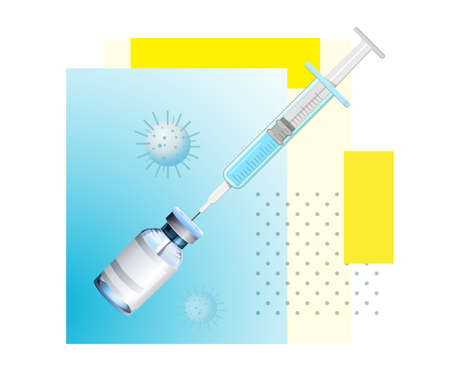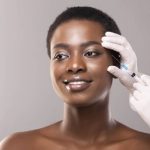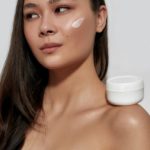1. Understanding Acne: Causes and Triggers
Acne is a common skin condition that affects people of all ages. To effectively prevent breakouts, its important to understand what causes acne and the factors that trigger it. Several elements contribute to acne, including hormonal changes, diet, stress, and environmental influences.
Hormonal Changes
One of the primary causes of acne is hormonal fluctuations. During puberty, pregnancy, or even due to certain medical conditions, the body produces more androgens—hormones that increase oil production in the skin. Excess oil can clog pores, leading to breakouts.
Diet and Acne
Your diet plays a significant role in your skin health. Some foods may contribute to acne by increasing inflammation or affecting hormone levels. Here’s a quick look at how different foods impact your skin:
| Food Type | Effect on Acne |
|---|---|
| Dairy Products | May increase oil production and inflammation |
| Sugary Foods | Can cause spikes in insulin, triggering breakouts |
| Processed Foods | Might lead to increased inflammation in the body |
| Fruits & Vegetables | Packed with antioxidants that support clear skin |
| Healthy Fats (Avocados, Nuts) | Help reduce inflammation and keep skin hydrated |
The Impact of Stress
Stress doesn’t directly cause acne, but it can make existing acne worse. When you’re stressed, your body releases cortisol, a hormone that can lead to increased oil production and inflammation. Practicing relaxation techniques like meditation or exercise can help manage stress levels.
Environmental Factors
Your surroundings also play a role in acne development. Pollution, humidity, and even the skincare products you use can affect your skin. Choosing non-comedogenic products (which don’t clog pores) and keeping your face clean from dirt and oil buildup can help prevent breakouts.
Key Takeaways:
- Hormonal changes: Fluctuations in hormones can increase oil production.
- Diet: Certain foods may trigger or worsen breakouts.
- Stress: High-stress levels can contribute to acne flare-ups.
- Environment: Pollution and skincare products can impact your skin health.
Understanding these causes and triggers is the first step in achieving clear skin. By making small adjustments to your lifestyle and skincare routine, you can significantly reduce acne breakouts.
2. Effective Skincare Routine for Acne Prevention
Keeping your skin clear and healthy starts with a proper skincare routine. By following the right steps daily, you can prevent breakouts, reduce irritation, and maintain balanced skin. Below are the essential skincare practices you should follow for acne prevention.
Cleansing: The First Step to Clear Skin
Cleansing your skin properly is crucial for removing dirt, oil, and bacteria that can clog pores and cause breakouts.
How to Cleanse Your Skin Properly:
- Use a gentle, sulfate-free cleanser to avoid stripping natural oils.
- Wash your face twice daily—morning and night.
- Avoid scrubbing too hard, as it can irritate the skin.
- If you wear makeup, use a mild makeup remover before cleansing.
Exfoliating: Removing Dead Skin Cells
Exfoliation helps remove dead skin cells that can block pores and lead to acne. However, over-exfoliating can damage your skin barrier, so its important to do it correctly.
Best Practices for Exfoliation:
- Use a chemical exfoliant (like salicylic acid) 2-3 times per week.
- Avoid harsh physical scrubs that can cause microtears in the skin.
- If you have sensitive skin, choose a mild exfoliant to prevent irritation.
Moisturizing: Keeping Your Skin Hydrated
A common misconception is that oily or acne-prone skin doesn’t need moisturizer. In reality, skipping moisturizer can cause your skin to produce more oil, leading to breakouts.
| Skin Type | Recommended Moisturizer |
|---|---|
| Oily Skin | Oil-free, lightweight gel moisturizer |
| Dry Skin | Ceramide-based cream moisturizer |
| Sensitive Skin | Fragrance-free hydrating lotion |
| Combination Skin | Balancing moisturizer with water-based formula |
Sunscreen: Protecting Your Skin Daily
Sunscreen is essential even if you have acne-prone skin. Sun exposure can worsen acne scars and cause premature aging.
Sunscreen Tips for Acne-Prone Skin:
- Select an oil-free, non-comedogenic sunscreen (SPF 30 or higher).
- Avoid thick or greasy sunscreens that may clog pores.
- If using chemical sunscreen irritates your skin, try a mineral-based option with zinc oxide or titanium dioxide.
A consistent skincare routine with proper cleansing, exfoliating, moisturizing, and sun protection will help keep your skin clear and healthy. By using products suited for your skin type and avoiding harsh ingredients, you can effectively prevent acne breakouts.
![]()
3. Diet and Lifestyle Habits for Clear Skin
Your daily habits, from what you eat to how much you sleep, play a crucial role in your skins health. By making mindful choices, you can reduce breakouts and promote a clear complexion.
Eat for Healthy Skin
The food you consume can either support or disrupt your skins balance. Here are some skin-friendly dietary tips:
| Foods to Eat | Foods to Avoid |
|---|---|
| Fruits and vegetables (rich in antioxidants) | Dairy products (may trigger breakouts in some people) |
| Whole grains (help regulate blood sugar levels) | Sugary foods and drinks (can increase inflammation) |
| Healthy fats (avocados, nuts, and olive oil) | Processed foods (often contain inflammatory ingredients) |
| Lean proteins (chicken, fish, tofu) | Fast food (high in unhealthy fats and refined carbs) |
Stay Hydrated
Drinking enough water is essential for maintaining healthy skin. Proper hydration helps flush out toxins, keeps your skin moisturized, and prevents excess oil production. Aim for at least 8 glasses of water per day.
The Role of Exercise
Regular physical activity improves blood circulation, reduces stress, and helps regulate hormones—all factors that contribute to clearer skin. Just remember to wash your face after sweating to prevent clogged pores.
The Importance of Sleep
Poor sleep can lead to increased stress hormones, which may worsen acne. Try to get 7-9 hours of quality sleep each night to allow your skin time to heal and regenerate.
4. Best Ingredients and Products for Acne-Prone Skin
When it comes to preventing breakouts and maintaining clear skin, choosing the right skincare ingredients is essential. Some ingredients are particularly effective at unclogging pores, reducing inflammation, and improving skin texture. Below, we’ll explore some of the best acne-fighting ingredients and how they work.
Key Ingredients to Look For
Here are some of the most effective skincare ingredients for acne-prone skin:
| Ingredient | Benefits |
|---|---|
| Salicylic Acid | A beta hydroxy acid (BHA) that penetrates deep into pores to remove excess oil and dead skin cells, helping to prevent clogged pores and breakouts. |
| Benzoyl Peroxide | Kills acne-causing bacteria, reduces inflammation, and helps clear existing blemishes while preventing new ones from forming. |
| Niacinamide | A form of vitamin B3 that helps reduce redness, control oil production, and improve overall skin texture. |
| Azelic Acid | An anti-inflammatory ingredient that helps even out skin tone, unclog pores, and fight acne-causing bacteria. |
| Tea Tree Oil | A natural antibacterial ingredient that can help reduce inflammation and fight acne without over-drying the skin. |
The Best Skincare Products for Acne-Prone Skin
If you have acne-prone skin, it’s important to use products specifically formulated to keep your complexion clear. Here are some recommended types of products:
Cleansers
A good cleanser removes dirt, oil, and bacteria without stripping the skin. Look for a gentle cleanser with salicylic acid or benzoyl peroxide to help prevent breakouts.
Toners
Toners with niacinamide or witch hazel can help balance oil production and soothe irritated skin.
Moisurizers
Moisurizing is still crucial for acne-prone skin. Choose an oil-free, non-comedogenic moisturizer with ingredients like hyaluronic acid or niacinamide.
Treatments
If youre dealing with persistent breakouts, spot treatments with benzoyl peroxide or salicylic acid can help target pimples directly.
Tips for Choosing the Right Products
- Avoid Harsh Ingredients: Stay away from alcohol-based products that can dry out your skin and trigger more oil production.
- Look for “Non-Comedogenic” Labels:This means the product is formulated not to clog pores.
- Pace Yourself:If youre trying a new product with active ingredients, start slow to avoid irritation.
Selecting the right skincare ingredients and products can make a big difference in keeping your skin clear and healthy. Focus on gentle yet effective formulations that support your skins natural barrier while targeting acne at its source.
5. When to Seek Professional Treatment
Sometimes, home remedies and over-the-counter treatments just aren’t enough to get acne under control. If you’ve tried multiple solutions without success, or if your acne is severe and causing scarring, it may be time to see a dermatologist. A professional can offer advanced treatments tailored to your skin’s specific needs.
Signs You Should See a Dermatologist
Not sure if its time to seek professional help? Here are some signs that indicate you should make an appointment with a dermatologist:
| Signs | Why It Matters |
|---|---|
| Your acne is painful or cystic | Cystic acne can lead to permanent scarring and requires prescription treatment. |
| Over-the-counter products don’t work | If youve tried various OTC treatments for months with no improvement, stronger solutions may be needed. |
| Your acne is affecting your confidence | If acne is impacting your self-esteem or mental health, professional help can provide relief. |
| You have dark spots or scars | A dermatologist can recommend treatments like chemical peels or laser therapy to reduce discoloration. |
Treatment Options Dermatologists Offer
Dermatologists have access to powerful treatments that can effectively manage and prevent breakouts. Here are some common options:
Prescription Medications
If OTC products arent working, dermatologists may prescribe stronger medications such as:
- Topical Retinoids: Help unclog pores and promote skin renewal.
- Oral Antibiotics: Reduce inflammation and bacterial growth.
- Birth Control Pills: Can help regulate hormones in women with hormonal acne.
- Isotretinoin (Accutane): A powerful option for severe, persistent acne.
Chemical Peels and Professional Treatments
If youre dealing with stubborn breakouts or post-acne marks, professional treatments like these can help:
- Chemical Peels: Exfoliate the skin, unclog pores, and reduce acne scars.
- Laser Therapy: Targets bacteria and reduces redness and scarring.
- Extraction Procedures: Safely remove blackheads and whiteheads without causing damage.
The Bottom Line
If your acne isn’t improving despite your best efforts, seeing a dermatologist can be a game-changer. They can customize a treatment plan based on your skin type and severity of breakouts, helping you achieve clearer skin faster and more effectively than with home remedies alone.


